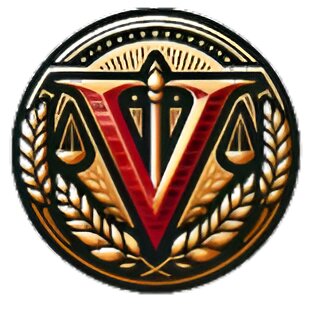Best Guardianship Lawyers in Las Palmas de Gran Canaria
Share your needs with us, get contacted by law firms.
Free. Takes 2 min.
List of the best lawyers in Las Palmas de Gran Canaria, Spain
About Guardianship Law in Las Palmas de Gran Canaria, Spain
Guardianship, known in Spanish as "tutela," is a legal mechanism designed to protect and represent individuals who are unable to take care of themselves or their assets, often due to minority, incapacity, or disability. In Las Palmas de Gran Canaria, as in the rest of Spain, guardianship is regulated by both the national Civil Code and more recent laws focused on disability rights and protection. The courts oversee the appointment of a guardian who is responsible for the well-being and property of the ward, ensuring their interests are safeguarded both legally and personally.
Why You May Need a Lawyer
Legal assistance is essential in guardianship proceedings to ensure all legal requirements are properly met and to protect the interests of the person in need of protection. Typical situations where legal help is needed include:
- Applying for guardianship of a minor whose parents are unable to care for them due to incapacity, abandonment, or death
- Seeking guardianship for an elderly family member or adult with a disability or mental incapacity
- Contesting a guardianship appointment or addressing concerns about a guardian’s performance
- Handling disputes within families regarding who should serve as guardian
- Managing and accounting for the ward’s assets and ensuring legal compliance
- Ensuring the guardianship is regularly reviewed and updated as necessary
With the complexity of local regulations and the responsibility that guardianship entails, a lawyer helps navigate the process, advocate for your rights, and ensure the best interests of the person requiring protection are always prioritized.
Local Laws Overview
Guardianship in Las Palmas de Gran Canaria is principally governed by the Spanish Civil Code and by Law 8/2021, which reformed civil and procedural legislation to support people with disabilities in exercising legal capacity. Key aspects include:
- The courts are responsible for appointing a guardian when circumstances require it.
- The best interests of the minor or incapacitated person always guide the legal process.
- Family members are generally preferred for the guardianship role unless it is deemed unsuitable.
- The guardian is accountable to the court and must regularly report on personal and financial activities.
- Periodic judicial reviews ensure ongoing suitability and well-being of the ward.
- Legal reforms emphasize support measures over traditional guardianship to encourage autonomy wherever possible.
Gran Canaria does not have independent regional laws on guardianship, but the application and local interpretation can vary. It is crucial to work with lawyers experienced in local practices and court procedures.
Frequently Asked Questions
What is the difference between guardianship (tutela) and curatorship (curatela) in Spain?
Guardianship involves full legal representation of someone unable to care for themselves, often minors without parental care or adults declared legally incapacitated. Curatorship provides more limited support, focusing on specific acts or areas where assistance is required.
Who can become a guardian in Las Palmas de Gran Canaria?
Any adult who is of sound mind and has not been legally disqualified can be appointed as a guardian. Preference is typically given to close family members, unless the court believes another person would better serve the ward's interests.
How is guardianship established?
Guardianship is established by a judicial process. A petition is filed with the courts, evidence is reviewed, and a judge makes a determination based on the needs and best interests of the person requiring protection.
Can a guardianship appointment be challenged?
Yes, interested parties can challenge a guardianship appointment if they believe the selected guardian is not suitable or if the ward’s rights are not being protected.
What are the duties of a guardian?
A guardian must ensure the physical and emotional well-being of the ward, manage their assets responsibly, report to the court, and always act in their best interests.
Can the person under guardianship choose their guardian?
If the individual has sufficient capacity, their preference will be considered and respected by the courts as far as possible.
How long does the guardianship process take?
The timeframe varies but may take several months, depending on the complexity of the case and court schedules in Las Palmas de Gran Canaria.
What is the cost of establishing guardianship?
Costs include court fees, legal fees, and possible medical or psychological expert reports. Legal aid may be available for those with limited resources.
Is guardianship permanent?
Not always. Guardianship can be revised or terminated by the court if the ward's situation changes or if a better solution for support arises.
Does Las Palmas de Gran Canaria have unique guardianship rules?
Guardianship is regulated by national law, but local courts may have their own procedures and practical approaches. Working with a local lawyer ensures compliance with these specifics.
Additional Resources
Individuals seeking legal advice or support on guardianship matters in Las Palmas de Gran Canaria can benefit from the following resources:
- Juzgados de Primera Instancia de Las Palmas - The local civil courts handle guardianship applications and oversight.
- Colegio de Abogados de Las Palmas - The local bar association can help you find qualified guardianship lawyers.
- Instituto Canario de Igualdad - Offers information and resources for dependent minors or adults.
- Servicio Público de Orientación Jurídica - Free or subsided legal orientation services.
- Local Social Services (Servicios Sociales Municipales) - Can provide assessments and initiate guardianship or support proceedings.
- Ministry of Justice (Ministerio de Justicia) - Offers official information on guardianship laws and reforms.
Next Steps
If you require assistance with a guardianship matter in Las Palmas de Gran Canaria, consider the following steps:
- Gather all relevant documents, such as identification, medical reports, and family information.
- Contact a qualified local lawyer with experience in guardianship proceedings to discuss your situation in detail.
- Consult with the relevant courts or the Colegio de Abogados for preliminary support or to verify legal representation.
- Prepare for possible evaluations or court hearings as part of the guardianship process.
- Stay informed about your rights, duties, and any updates to guardianship laws that may impact your case.
Seeking professional legal guidance ensures that both the person in need of protection and those wishing to help them are fully supported and that the legal process runs as smoothly as possible.
Lawzana helps you find the best lawyers and law firms in Las Palmas de Gran Canaria through a curated and pre-screened list of qualified legal professionals. Our platform offers rankings and detailed profiles of attorneys and law firms, allowing you to compare based on practice areas, including Guardianship, experience, and client feedback.
Each profile includes a description of the firm's areas of practice, client reviews, team members and partners, year of establishment, spoken languages, office locations, contact information, social media presence, and any published articles or resources. Most firms on our platform speak English and are experienced in both local and international legal matters.
Get a quote from top-rated law firms in Las Palmas de Gran Canaria, Spain — quickly, securely, and without unnecessary hassle.
Disclaimer:
The information provided on this page is for general informational purposes only and does not constitute legal advice. While we strive to ensure the accuracy and relevance of the content, legal information may change over time, and interpretations of the law can vary. You should always consult with a qualified legal professional for advice specific to your situation.
We disclaim all liability for actions taken or not taken based on the content of this page. If you believe any information is incorrect or outdated, please contact us, and we will review and update it where appropriate.









